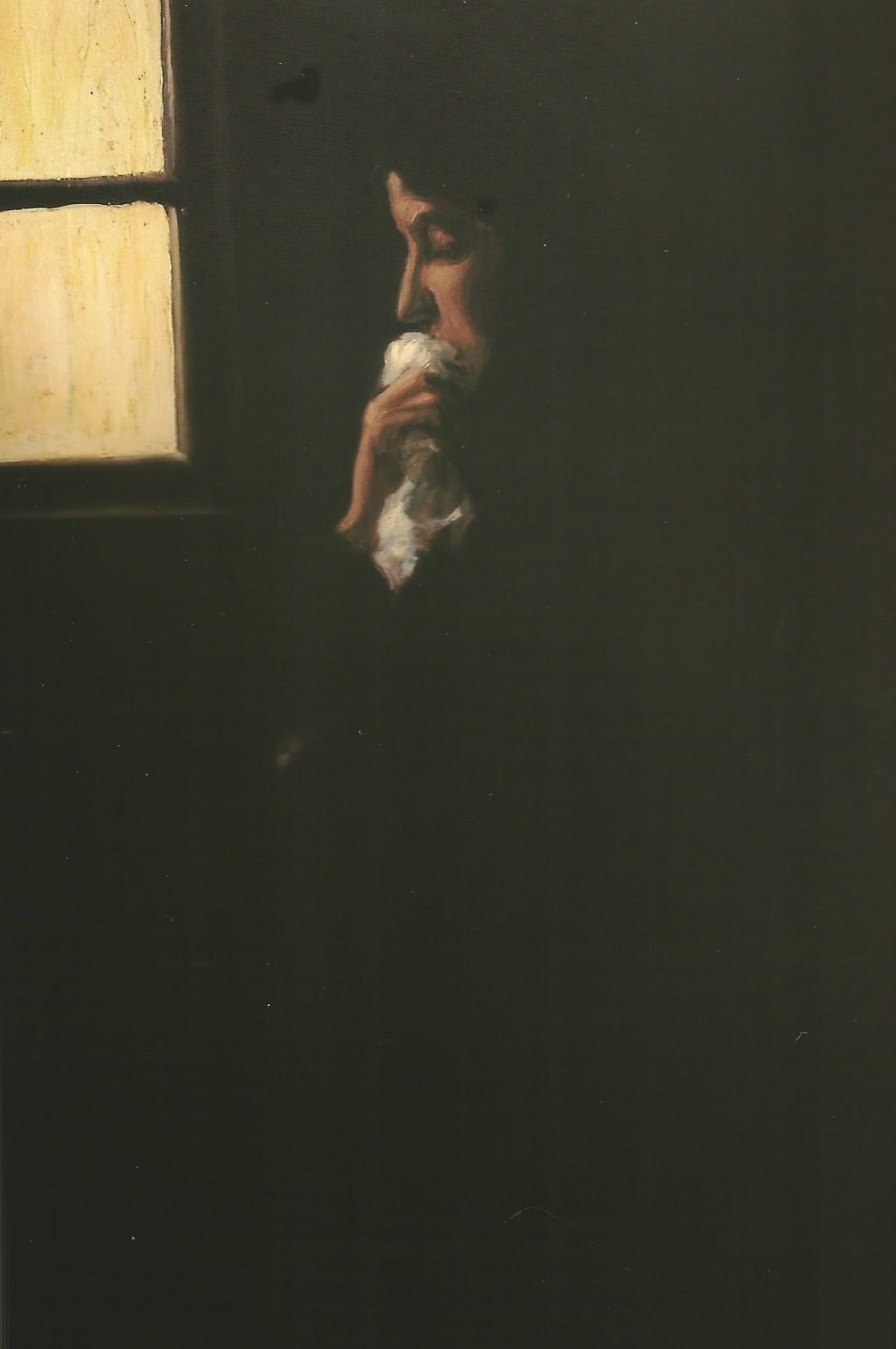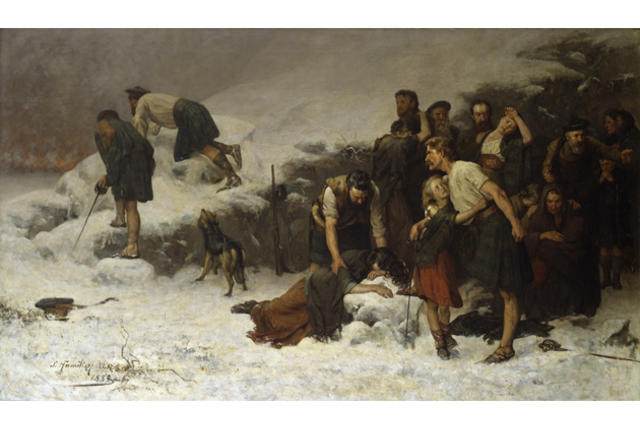Estranxeira na súa patria
Na xa vella baranda
entapizada de hedras e de lirios
foise sentar calada e tristemente
frente do tempro antigo.
Interminable precesión de mortos,
uns en corpo nomáis, outros no esprito,
veu pouco a pouco a aparecer na altura
do direito camiño,
que monótono e branco relumbraba,
tal como un lenzo nun herbal tendido.
Contempróu cál pasaban e pasaban
collendo hacia o infinito,
sin que ó fixaren nela
os ollos apagados e afundidos
deran siñal nin moestra
de habela nalgún tempo conocido.
I uns eran seus amantes noutros días,
deudos eran os máis i outros amigos,
compañeiros da infancia,
sirventes e veciños.
Mais pasando e pasando diante dela,
fono os mortos aqueles prosiguindo
a indiferente marcha
camiño do infinito,
mentras cerraba a noite silenciosa
os seus loitos tristísimos
en torno da estranxeira na súa patria,
que, sin lar nin arrimo,
sentada na baranda contempraba
cál brilaban os lumes fuxitivos.
Foreigner in her own land
On the old veranda,
Upholstered with ivy and irises,
She sat, silent and sad
In front of the old temple.
Never ending procession of the dead,
Some only in body, others in spirit,
Little by little appeared at the height
Of the straight path
That, monotonous and white, shone brilliantly
Like a canvass spread out in a field.
She watched as they passed by
Moving towards the infinite
Without glancing at her
those dead and sunk eyes
showed no sign whatsoever
Of having ever known her.
And some had been her lovers in other times
Most were debtors to her and others friends,
Childhood companions
Servants and neighbors.
But as they went past
The dead continued their march
Their indifferent march
Towards the infinite,
While the silent night closed
its
sad, sad mourning
Around
the foreign girl in her own land,
Who,
without house nor home,
Sitting
on the veranda, watched
How
the fugitive fires shone.
Follas Novas
Rosalía de Castro
Pinturas de María do Carmo Corredoira




Comentarios